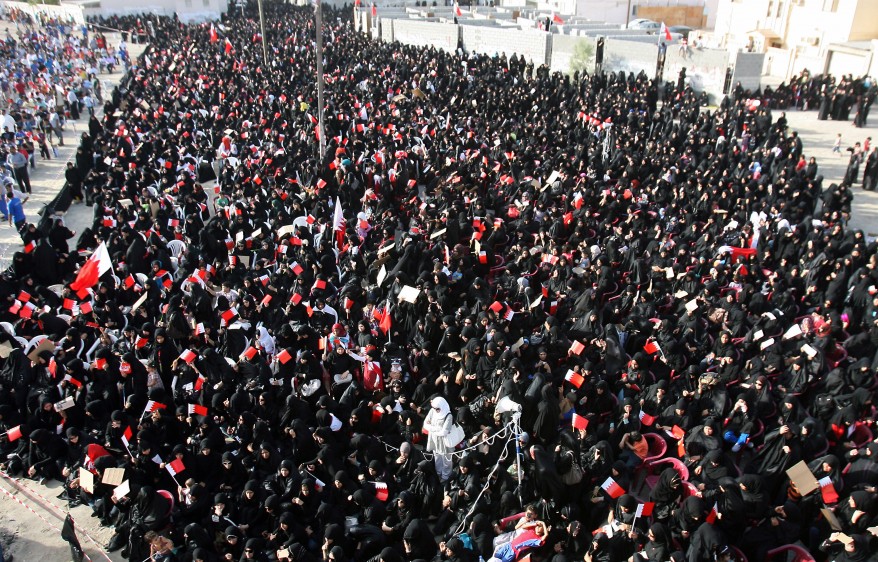Americans for Democracy & Human Rights in Bahrain (ADHRB), the Bahrain Center for Human Rights (BCHR) and the Bahrain Institute for Rights and Democracy (BIRD), having condemned in the strongest terms the recent arrest and alleged torture of at least thirteen women in Bahrain, would like to call further attention to the instability perpetuated by the Bahraini government in the lead up to the nation’s first elections in three years. The detention of the activists for organising a public referendum counts as yet another overreaction from a government unwilling to meet the demands of the international community.
The Government of Bahrain had the opportunity to organize this weekend’s elections in a manner which would address significant international criticism. Since 2011, Member States of the Human Rights Council at the United Nations have issued four separate joint statements raising concerns over the human rights situation in Bahrain, the last of which garnered 47 signatures. Undeterred, the government has continued targeting Shia religious sites and violently suppressing peaceful protests. In the aftermath of the Arab Spring, Bahrain underwent the second cycle of its Universal Periodic Review (UPR), and the resulting Human Rights Council report urged significant reforms, including the abandonment of restrictions on the activities of human rights defenders. In the years since the report’s publication, the government has failed to adhere to these recommendations. Recent months have seen the arrest and harassment of prominent activists Maryam al-Khawaja, Zainab al-Khawaja and Nabeel Rajab. Additionally, recommendations advanced in the 2011 report of the Bahrain Independent Commission of Inquiry (BICI) have also gone unheeded.
While the government has received pushback from NGOs and civil society, its actions have also managed to challenge its relations with the United States, a longtime security partner. Senior U.S. officials anonymously called the suppression of human rights advocates “stupid and self-defeating.” When authorities arrested Nabeel Rajab for a tweet in October, the U.S. Department of State urged the Bahraini government to release the activist and drop all charges.
Despite this unfavourable global climate, the Government of Bahrain’s upcoming elections are poised to invite international and internal scrutiny. In late October, a court suspended the main opposition society al-Wefaq, preventing it from organising rallies or issuing statements during the election period. This occurred after the government attempted to prosecute prominent opposition leaders on spurious charges over the summer. Expressing no faith in the government’s process, Bahrain’s largest opposition societies including al-Wefaq have opted to boycott the elections, casting doubt on the popular legitimacy of any results.
In response to these troubling indicators, the EU Parliament released a statement welcoming the upcoming elections, and ambassadors from the United Kingdom, France and Germany expressed their disappointment in opposition plans to boycott. While it is the default position of many in the international community to encourage democratic processes, the arrest of the thirteen Bahraini women should remind the countries of Europe that these elections are neither free nor fair, and that they operate within an anti-democratic context. As currently constituted, the elections will only lead to greater unrest and disunity, further entrenching a damaging political crisis.
A fair and acceptable resolution to this governing crisis will require concessions from those in power. Only by respecting human rights and adhering to Bahrain’s obligations under international law can the government break this cycle of instability. National reconciliation can only take place after the release of all political prisoners, the full adoption of the BICI and UPR recommendations, and the delivery of torturers to justice. These steps will encourage all parties to engage in a comprehensive national dialogue that will deescalate mounting tensions and take practical steps toward a transitional justice system suitable for a nascent democratic society. In this environment, the opposition would see boycotts as unnecessary, and elections could be restorative rather than divisive.




